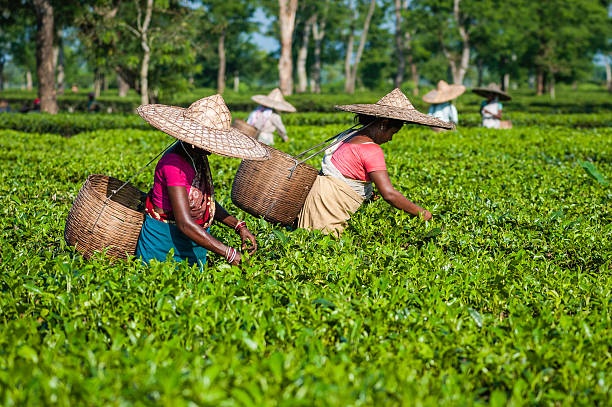In 1823, Robert Bruce discovered wild tea plants growing wild in the upper Brahmaputra Valley. Subsequently, a tea garden was started by the government in 1833 in the erstwhile Lakhimpur district.
Cut to today, Assam now produces nearly 700 million kg of tea annually and accounts for around half of India’s overall tea production. The state also generates annual foreign exchange earnings estimated at an equivalent to Rs 3,000 crore.
Tea growers in Assam have kickstarted a year-long celebration of the plantation industry reaching a crucial milestone of 200 years.
Renowned globally for its richly coloured and aromatic tea, Assam’s tea industry, which is the country’s largest, provides livelihoods to millions with many others directly or indirectly dependent on the plantations. The state is famed for both Orthodox as well as the CTC (Crush, Tear, Curl) varieties of tea.
India as a whole contributes 23 percent to the global tea output and employs around 1.2 million workers in the tea plantation sector.
The first event to celebrate 200 years of Assam tea took place in Jorhat last week. It was organised under the banner of North Eastern Tea Association (NETA).
On that occasion, a book ‘Two hundred years of Assam Tea 1823-2023: the genesis and development of Indian Tea’, written by tea researcher and writer Pradip Baruah, was released. The book chronicles the entire 200-year journey of Assam’s tea industry while also documenting notable events in its history.
The tea industry in Assam was earlier dominated by large-sized gardens operated by corporates.
Tea plantation in Assam has come a full circle as thousands of small farmers have taken to growing the crop, primarily shifting from paddy. The tea plantation business has seen unemployed youths taking up tea cultivation as a business venture. Some even cultivate it in their backyards too, while many have started their tea stories through startups.
For several years now, India’s tea industry has been struggling with issues such as rising production costs, relatively stagnant consumption, subdued prices and crop losses due to climate change. It also faces the challenge of finding a footing and holding its ground in a competitive global market.
Setting up tea boutiques in major tourist places in Assam as well as major cities across India are among the other steps that the state has planned to improve the visibility of Assam Tea.
The state government is also planning to organize annual tea festivals to commemorate International Tea Day, which is celebrated every year on May 21, for which a sum of Rs 50 lakh per year shall be parked for the purpose.
Also Read: Jio Expands Its 5G Service Net













